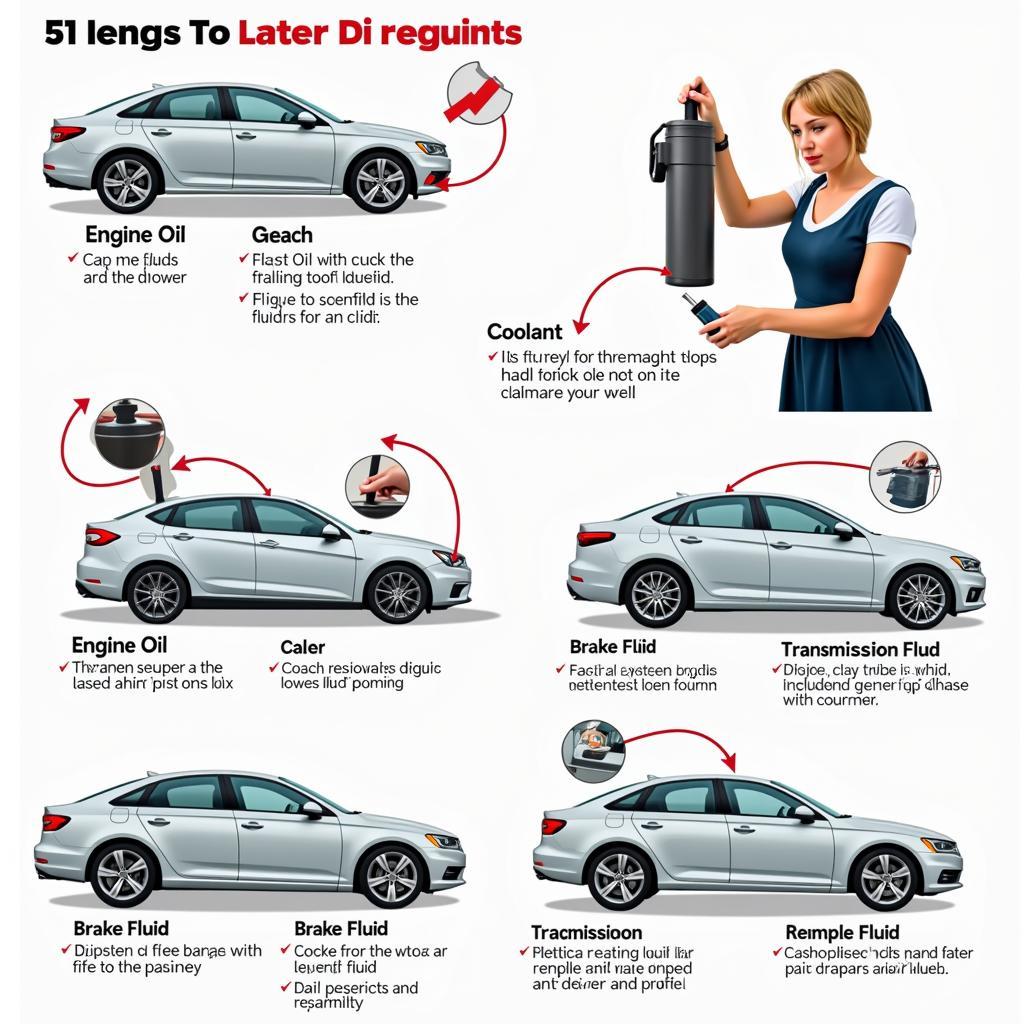Overcharging your car’s AC system with freon can lead to a variety of problems, impacting both performance and longevity. Understanding the symptoms of an overcharged system and knowing how to address them can save you costly repairs down the line. This guide will help you identify, understand, and resolve Problems With Too Much Freon In Cars.
Recognizing the Signs of an Overcharged AC System
Several telltale signs indicate your car might be suffering from problems with too much freon. These include reduced cooling performance, unusually loud noises emanating from the compressor, and even damage to the compressor itself. Other symptoms include iced-up AC lines and erratic cycling of the compressor clutch.
- Reduced Cooling: While you might expect an overcharged system to produce excessive cooling, the opposite is often true. Too much freon disrupts the pressure balance within the system, hindering its ability to absorb heat effectively.
- Loud Noises: The compressor, the heart of your AC system, works harder under increased pressure, leading to grinding, whining, or buzzing sounds.
- Compressor Damage: Prolonged overcharging can cause significant damage to the compressor, potentially leading to complete failure and requiring an expensive replacement. The increased pressure can strain internal components and lead to overheating.
- Iced-up AC Lines: Excess freon can cause the refrigerant to remain in a liquid state beyond the evaporator, leading to ice formation on the AC lines.
- Erratic Cycling: The compressor clutch may engage and disengage rapidly and irregularly, indicating an imbalance in the system pressure.
What Causes an Overcharged AC System?
Problems with too much freon in cars typically arise from incorrect recharging procedures. DIY recharging kits can be convenient, but improper usage can easily lead to overcharging. It’s also possible for a technician to miscalculate the correct refrigerant charge during professional servicing. Another less common cause is a faulty pressure relief valve.
- Incorrect DIY Recharging: Using DIY kits without proper understanding of the system’s pressure requirements is a common culprit.
- Technician Error: Even professionals can make mistakes, resulting in an overcharged system.
- Faulty Pressure Relief Valve: Though rare, a malfunctioning pressure relief valve can fail to release excess pressure, leading to overcharging.
How to Fix an Overcharged Car AC
Addressing problems with too much freon in cars requires professional expertise. While some might be tempted to release some refrigerant themselves, this is not recommended due to the environmental hazards associated with releasing refrigerants into the atmosphere.
- Professional Recovery and Recharge: The most effective solution is to take your car to a qualified technician who can safely recover the excess freon and recharge the system to the correct specifications using specialized equipment.
- Component Inspection: The technician should also inspect the system for any damage caused by the overcharging, such as compressor damage or leaks.
- Leak Detection: If a leak is suspected, a dye test can be performed to pinpoint the source of the leak.
“Overcharging an AC system can be more detrimental than undercharging,” advises John Smith, a certified automotive HVAC specialist with over 20 years of experience. “It’s crucial to address this issue promptly to prevent irreversible damage to the compressor and other components.”
Preventing Overcharging in the Future
Preventing problems with too much freon involves careful attention to maintenance and proper servicing procedures. Regular AC system inspections can identify potential issues before they escalate. Always choose a reputable service center with experienced technicians for AC-related work.
- Regular Maintenance: Schedule routine AC system checks as part of your regular car maintenance.
- Professional Service: Opt for certified technicians who have the necessary expertise and equipment to handle AC system servicing.
“Preventive maintenance is key to a healthy and efficient AC system,” adds Emily Davis, another seasoned automotive expert. “Regular checks can help identify and address potential problems before they become major headaches.”
Conclusion
Problems with too much freon in cars can lead to significant performance issues and costly repairs. Recognizing the symptoms of an overcharged system is crucial for timely intervention. Professional servicing is essential for both diagnosing and rectifying the problem. By understanding the causes and taking preventative measures, you can keep your car’s AC running smoothly for years to come. Contact AutoTipPro at +1 (641) 206-8880 or visit our office at 500 N St Mary’s St, San Antonio, TX 78205, United States for professional assistance with your car’s AC system.





Leave a Reply